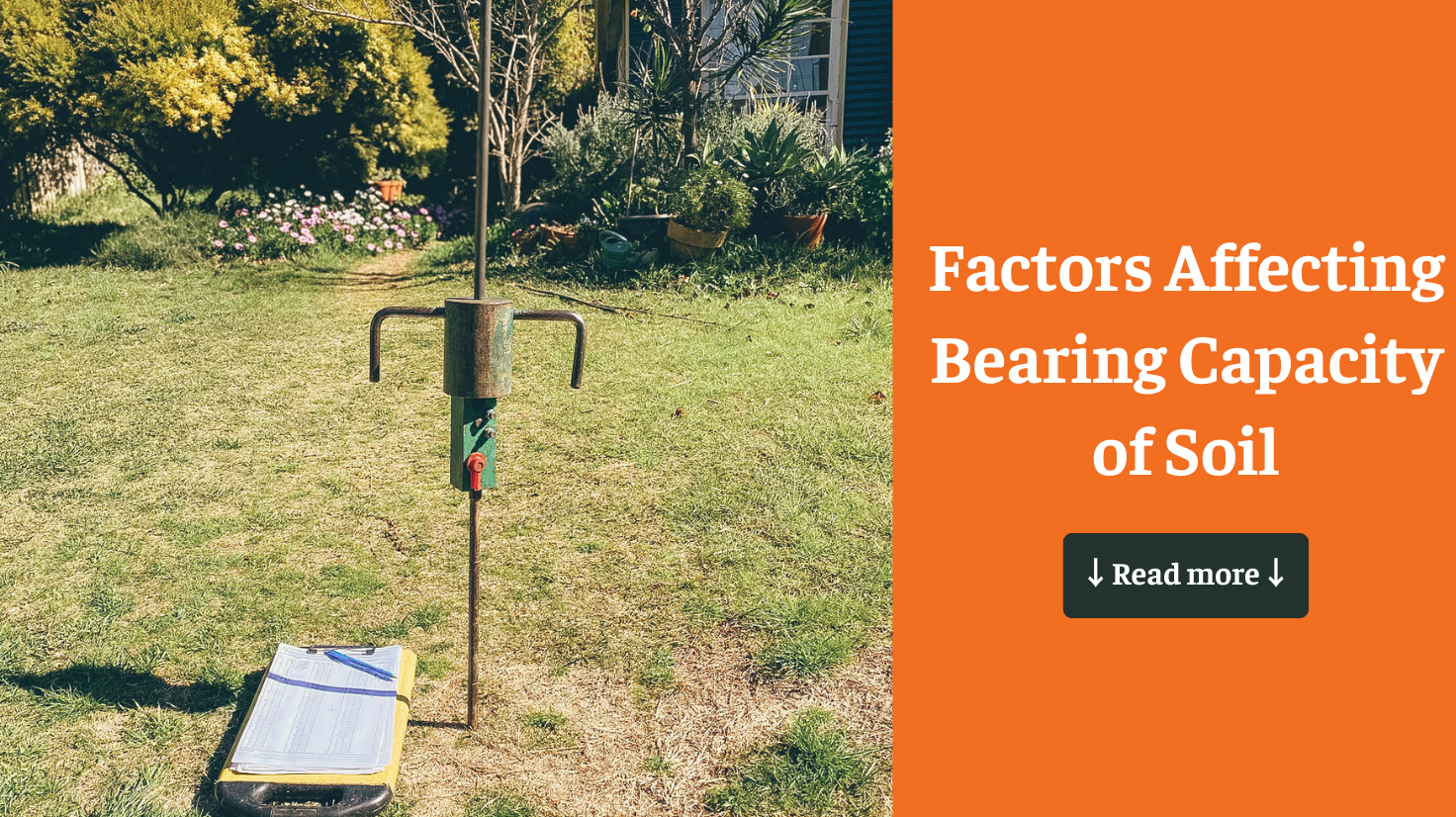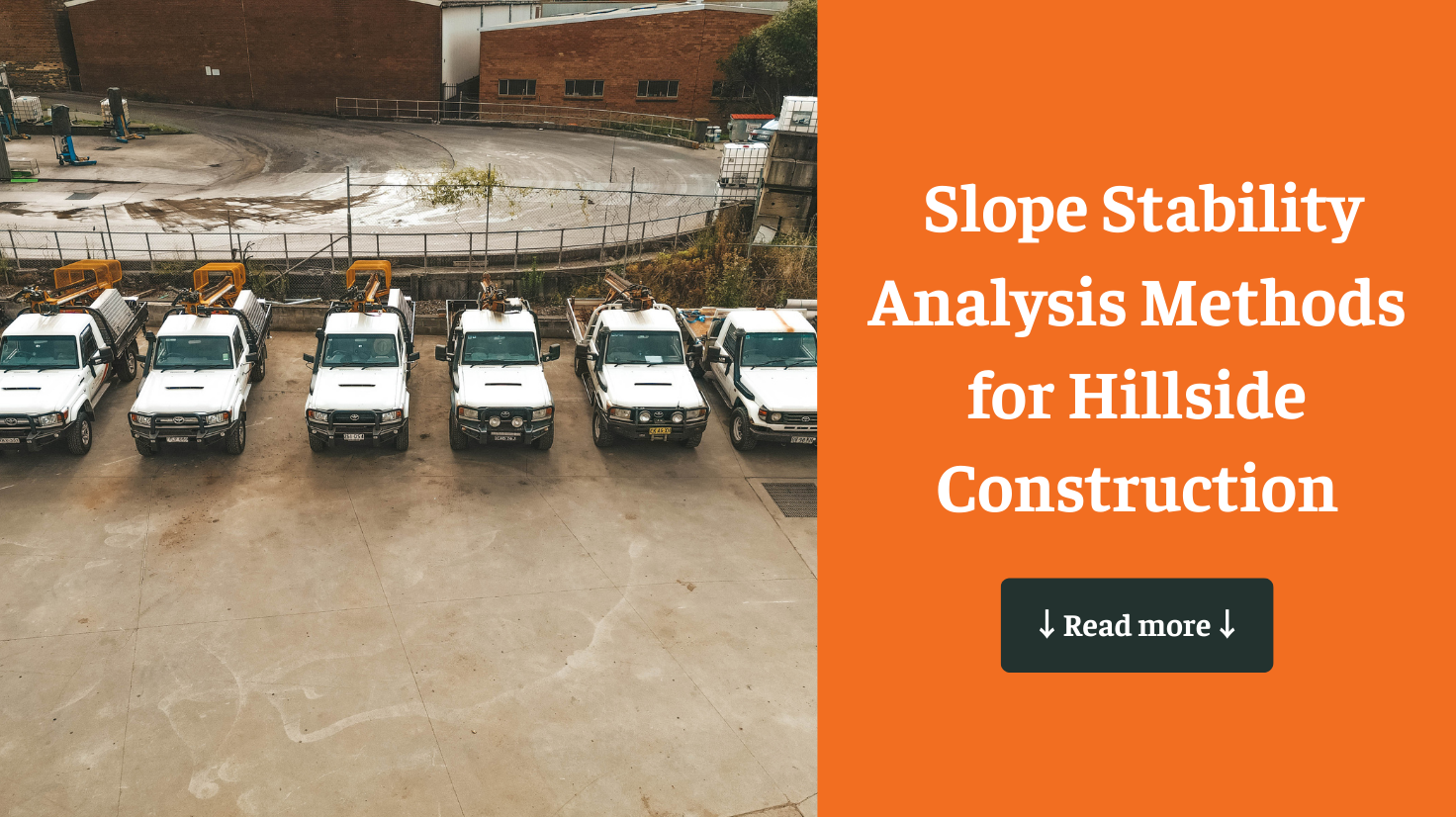When planning and designing foundations, accurately determining the bearing capacity of soil is crucial to ensuring the stability and safety of any structure. The bearing capacity of soil directly impacts the design choices made during construction, influencing decisions regarding the size, depth, and type of foundation required.
This article delves into the various factors that influence soil bearing capacity, including soil type, moisture content, soil density, load conditions, and foundation depth. By understanding these factors, you can make informed decisions that contribute to the successful completion of your construction project.
1. Understanding Bearing Capacity
The Soil bearing capacity refers to the maximum load per unit area that the soil can support without experiencing shear failure or excessive settlement. It is a fundamental parameter in foundation design, as it determines the extent to which the soil can sustain the weight of the structure being built. An accurate assessment of bearing capacity ensures that the foundation is both safe and effective, preventing structural issues that could arise from soil failure.
2. Factors Influencing Soil Bearing Capacity
2. 1 Soil Type
Different soil types have varying bearing capacities. For instance:
- Gravel and Sand: These coarse-grained soils generally possess high bearing capacities due to their excellent drainage properties and particle interlocking. They are less prone to significant changes in bearing capacity with moisture fluctuations, making them a reliable choice for supporting structures.
- Clay: Clay soils can have a wide range of bearing capacities depending on their moisture content and consistency. While dry clay may have a relatively high bearing capacity, wet clay tends to be weaker due to its reduced shear strength and increased plasticity, posing challenges for foundation stability
- Silt: Silty soils typically have moderate bearing capacities but can become problematic due to their propensity to retain water. The water retention characteristics of silt can lead to instability, particularly under loading conditions, requiring careful consideration during foundation design.
2.2 Moisture Content
Moisture content significantly impacts the soil bearing capacities:
- Dry Soil: Dry soil usually exhibits higher bearing capacity because of its compact and stable nature. The absence of water allows soil particles to remain closely packed, enhancing their ability to resist loads.
- Saturated Soil: Waterlogged or saturated soils have significantly lower bearing capacities. The presence of water within the soil reduces its ability to compact and can lead to increased pore water pressure, which diminishes the soil’s load-bearing capacity and heightens the risk of displacement or shear failure
2.3 Soil Density and Compaction
The density and compaction of soil affect its load-bearing capacity:
- Dense and Well-Compacted Soil: Soils that are dense and well-compacted can support higher loads due to reduced void spaces and increased particle interlocking. This type of soil offers greater resistance to deformation, making it suitable for foundations that require substantial load support.
- Loose and Poorly Compacted Soil: Loose soils, with their higher void ratios and lack of particle cohesion, generally exhibit lower bearing capacities. Such soils are prone to settlement under load, necessitating additional compaction or other ground improvement techniques to enhance their load-bearing capability.
2.4 Load Conditions
The nature and distribution of loads applied to the soil influence its bearing capacity:
- Uniform Loads: Evenly distributed loads across the foundation area are more effectively supported by the soil, leading to higher bearing capacities. Uniform loads reduce the likelihood of localised stress concentrations, which can compromise soil stability.
- Point Loads: Concentrated or point loads, such as those imposed by columns or individual footings, can cause localised stress and potentially reduce the bearing capacity of the soil. These loads require careful assessment and, if necessary, the use of reinforcement or load distribution strategies to prevent failure.
2.5 Foundation Depth
The depth at which the foundation is placed also affects the bearing capacities:
- Shallow Foundations: For soils with adequate bearing capacity near the surface, shallow foundations such as strip footings or pad footings can be effectively used. These foundations transfer loads to the soil immediately below the structure, making them a cost-effective option for stable ground conditions.
- Deep Foundations: When surface soils exhibit low bearing capacity, deep foundations such as piles or drilled shafts are required to reach stronger soil or rock layers at greater depths. Deep foundations are essential in areas where the upper soil layers cannot adequately support the structural loads.
3. Bearing Capacity Test of Soil
To accurately determine the bearing of soil, several tests can be conducted:
- Standard Penetration Test (SPT): Measures the resistance of soil to penetration by a standardized sampler.
- Cone Penetration Test (CPT): Uses a cone penetrometer to provide continuous profiles of soil resistance.
- Plate Load Test: Involves applying loads to a steel plate on the soil surface and measuring settlement.
- Pressuremeter Test: Measures soil deformation under controlled pressure.
- Vane Shear Test: Useful for assessing the shear strength of soft clays.
4. Conclusion
Understanding the factors that influence the bearing capacity of soil is essential for designing safe and effective foundations. By considering soil type, moisture content, soil density, load conditions, and foundation depth, engineers can make informed decisions to ensure the stability and safety of structures.
Ideal Geotech specialises in providing comprehensive bearing capacity assessments and lot classification reports within 5-7 days in metro areas. Our experienced team and extensive fleet of geotechnical rigs cover NSW, and Southeast Queensland.
For more information or to request a site classification report, visit our website or contact our team today. Ensure your construction project is built on solid ground with a thorough geotechnical report from Ideal Geotech.






